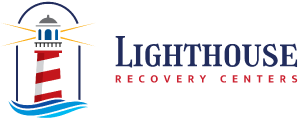At Lighthouse Recovery Center, all our treatments and therapy programs are 100% evidence-based and research-driven and are proven to be effective treatment modalities in treating addiction.
We offer a wide range of treatment plans for drug addiction and alcohol abuse tailored to suit the individual’s needs, mental health, personal and medical history, and their addiction’s nuances.
Every aspect of the individual is considered, including past traumas. We are a one of the few alcohol & drug addiction rehab centers offering holistic treatment of drug & alcohol addiction, considering both the addiction and any co-occurring mental health disorders.
Types of Therapy Available at Lighthouse Recovery Center
We offer a range of addiction therapy services at Lighthouse, all incorporated into the overall treatment plan. Types of therapy on offer at our facilities include:
1. Cognitive Behavioral Therapy (CBT)
2. Dialectical Behavioral Therapy (DBT)
Focusing on mindfulness, distress tolerance, and emotional regulation, dialectical behavioral therapy (DBT) is a highly effective form of evidence-based psychotherapy used in treating addiction.
Dialectical Behavioral Therapy (DBT) is a talk therapy that focuses on teaching individuals new skills and ways of thinking that help them live meaningful lives. DBT will teach the patient effective and practical means of handling stress and empowering them to take back control of their life.
3. Rational Emotive Behavior Therapy (REBT)
Rational emotive behavior therapy (REBT) helps the patient identify irrational, self-defeating thoughts and feelings. The patient is then taught how to replace these thoughts with more positive, self-empowering ones.
As with CBT and DBT, the modality of REBT is to identify the thought patterns that lead to self-harming behavior that results in substance abuse and addiction. The patient is taught problem-solving, cognitive restructuring, and coping techniques.
4. Family Therapy
Addiction doesn’t only affect the addict; the whole family struggles as a result. Some family members may blame themselves, while others may have negative emotions towards the addict. The actions of the addict impact everyone in their family and home, and these people need help too, in order to support the recovering addict and heal within themselves.
Family therapy at Lighthouse Recovery Center is focused on helping family members make positive changes to improve the home environment and prevent relapse in the patient. These family therapy sessions also work to strengthen and heal relationships between the patient and their family members.
5. Life Skills Training
For the recovering addict to live a healthy, successful life, they may need upskilling in certain areas of their life. Life skills training at Lighthouse Recovery Center aims to help the patient better themselves in various areas of their life, in order to succeed personally and professionally.
Life skills training as a part of addiction treatment includes personal self-management skills, social and interpersonal skills, vocational skills, and social resistance skills to prevent relapse.
6. 12-Step Programs
12-Step programs are most commonly used in group therapy support groups such as Alcoholics Anonymous and Narcotics Anonymous. 12-step recovery programS usually follow faith-based principles and include 12 steps for maintaining sobriety.
Often, patients will follow the 12-Step program to enhance and sustain the lessons and skills learned during inpatient rehab once they have left the rehab facility. During treatment, we introduce the patient to the 12-Step program and get them on the right track for ongoing support as a recovering addict.
Addiction Treatment at Lighthouse Recovery Center
At Lighthouse Recovery Center, we offer a wide range of addiction treatment therapies. We are committed to helping the individual heal in body, mind, and spirit. Our treatment approach is holistic and individualized to the patient.
We operate on faith-based principles and want to help everyone regardless of walk of life, religious orientation, sexuality, and gender identification.
When choosing a drug or alcohol rehab, it is essential to choose a rehab that can offer a range of treatment therapies and programs. At Lighthouse Recovery Center, we offer highly individualized treatment programs tailored for the patient’s unique needs.
Get your life back on track. Get in touch with us today so that we can help you.
